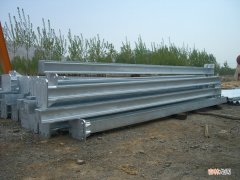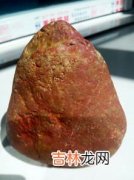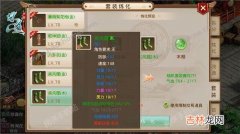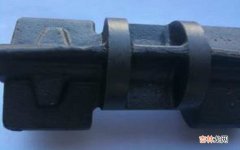cop是什么意思
COP是能效比,是能源转换效率之比 。能效比越大 , 节省的电能就越多 。在制冷和降噪之外,在日益追求环保和节能的今天 , 用电量的多少也是大家所关注的 。
对于消费者来说 , 选择节能空调可将日后使用过程中的电费一点一滴的节省下来,无疑是精明的选择 。这里涉及两个关键词:能效比和变频 。能效比是指空调器在制冷运行时,制冷量与有效输入功率之比 。能效比数值的大?。?反映出空调器产品每消耗1000W电功率时制冷量的大小 。
扩展资料:

COP能效比是指额定制冷量与额定功率(耗电量)的比值 。能效标志有从1至5个等级标记,从绿色到红色 , 并在左边有信息提示从“能耗低”到“能耗高”,右上角则明示出本规格型号产品的能效等级 。标志的下部提供有“能效比”、“输入功率”以及“制冷量”的具体数据 。能效等级是表示空调产品能效高低差别的一种分级方法 , 中国能效分5个等级,能效标志的底色为蓝色,顶头有“生产者名称”、“规格型号”等信息 。
cop是什么意思

1、动词:抓?。?
2、名词:巡警,警官;
3、名词:(Cop)人名;(塞、捷)措普;(土)焦普 。
cop是什么的缩写
COP是缔约方大会(Conference of the Parties)的英文缩写 。COP15是联合国《生物多样性公约》第十五次缔约方大会的英文简称 。《生物多样性公约》于1992年5月22日通过公约文本,6月在巴西里约热内卢由各国签署,1993年12月29日生效 , 是生物多样性保护的第一项全球协议 , 目前有196个缔约方 。
即将于昆明召开的COP15 , 将审议通过“2020年后全球生物多样性框架”,制定2021—2030年全球生物多样性目标,为未来十年甚至更长时间的全球生物多样性保护指明方向 。

以COP27为例,数字代表的意思:
COP27是《联合国气候变化框架公约》第27次缔约方会议的缩写(the 27th Conference of the Parties to the United Nations Framework Convention on Climate Change) 。该公约于1992年建立 , 1994年生效 。
1995年,《联合国气候变化框架公约》(UNFCCC)第一次缔约方大会在柏林举行 。今年,当该会议在埃及举行时,已经是第27次缔约方会议 。
所以,COP后面的数字代表了缔约方会议召开的次数 。同理,回到正在蒙特利尔召开的COP15,这是《联合国生物多样性公约(UN Conventionon on Biological Diversity)》第15次缔约方大会的简称 。
cop是什么意思
“cop”的意思是警察 。“cop”的中英文对照例句:
What’s the matter? Here’s a cop now.
怎么了?我是警察 。
Between my prison guard and your cop, aren’t we overdoing it?
在我的监狱看守和你的警察间选择,我们是不是做过火了?
【cop是什么意思】
You’re a hard-working cop now?
你现在是个努力工作的警察了?
And so is the cop she was with.
和她在一起的警察也死了 。
So we’re it. a cop and a bouncer.
只有我们了,警察与保镖 。
I was a cop and you were an info.
我是个警察,你是个线人 。
You always say I’m not a cop.
你总说我算不上是一个警察 。
If he finds out you’re talking to a cop.
如果他知道你和一个警察讲了这么多 。
I hope there’s a cop under that.
我希望底下有个警察 。
He’s a good cop.
他是个好警察 。
COP是什么东西
学英语的人都知道police是警察的意思,可在美国人们说警察普遍用cop这个词 。对英文有些研究的人会说,cop是police的俚语,不是警察的正式用语 。那可真是太学究了,因为现在连美国总统、美国国会说警察也常常用cop这个词 。其实cop和police或“原指警察制服上的铜扣子,慢慢人们就以扣子代警察了”都没什么关系,但是cop可以说是从copper而来的 。
根据下面的英文,我们可以看到cop是1700左右进入英语词汇(原本属于法语中的caper及后来的拉丁语capere,其实是今天capture的意思),是“抓捕、抓获”的意思 。1846年,有报刊在cop后面加上了“er”的后缀,表示“抓捕或逮捕犯罪的人” 。在1859年,cop作为copper的缩写开始流行起来 。
我把英文原文引下来,大家可以做个参考:
Theories for the origin of cop abound, including the copper badge explanation you mention. We’d always been under the impression that the term was an acronym for “constable on patrol.” Well, it seems we’re both mistaken, as we learned from our roundabout quest for the answer.
Around the year 1700, the slang verb cop entered English usage, meaning “to get ahold of, catch, capture.” By 1844, cop showed up in print, and soon thereafter the -er suffix was added, and a policeman became a copper, one who cops or catches and arrests criminals. Copper first appeared in print in 1846, the use of cop as a short form copper occured in 1859.
另一则引文:
[Q] From Billyboy Mackey: “Could you possibly tell me the origin of the slang term for policemen, cops?”
[A] Half a dozen explanations at least have been put forward for this one, including an acronym from “constable on patrol”, which is reminiscent of the story behind posh and quite certainly just as spurious. It is also said to come from the copper badges carried by New York City’s first police sergeants (patrolmen were alleged to have had brass ones and senior officers silver); it is almost as often said to refer to the supposedly copper buttons of the first London police force of the 1820s. Both these stories seem about equally unlikely.
The most probable explanation is that it comes from the slang verb cop, meaning “to seize”, originally a dialect term of northern England which by the beginning of the nineteenth century was known throughout the country. This can be followed back through the French caper to the Latin capere, “to seize, take”, from which we also get our capture.
The situation is complicated because there are—or have been—a number of other slang meanings for cop, including “to give somebody a blow”, and the phrase cop out, as an escape or retreat. Both of these may come from the Latin capere. But it’s suggested that another sense of cop, “to steal”, could come from the Dutch kapen, “to take or steal”. There’s also “to beware, take care”, an Anglo-Indian term from the Portuguese coprador, and phrases like “you’ll cop it!” (“you’ll be punished, you’ll get into trouble”), which could come from the idea of seizing or catching, but may be a variant of catch.
以上就是关于cop是什么意思的全部内容,以及cop是什么意思的相关内容,希望能够帮到您 。














